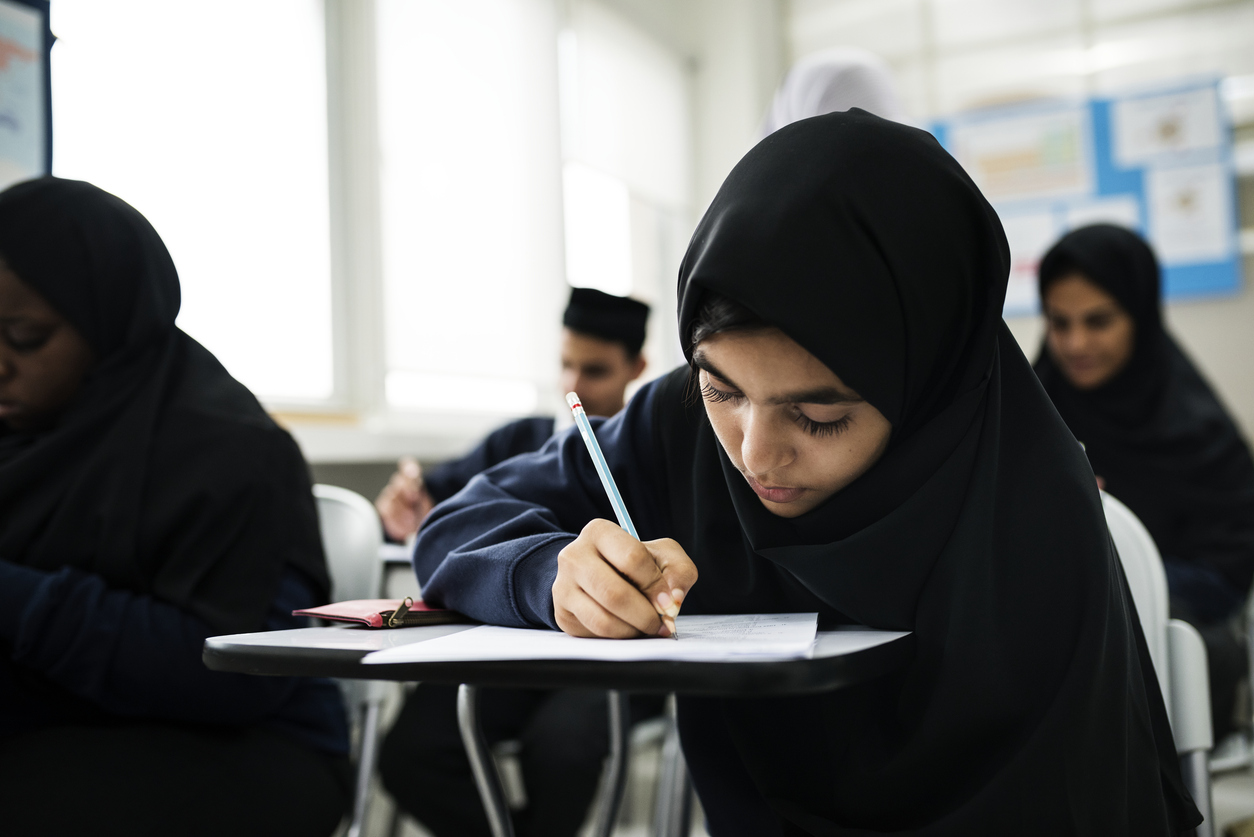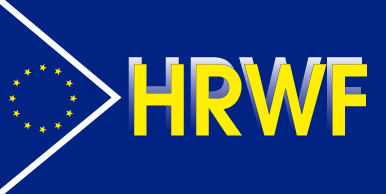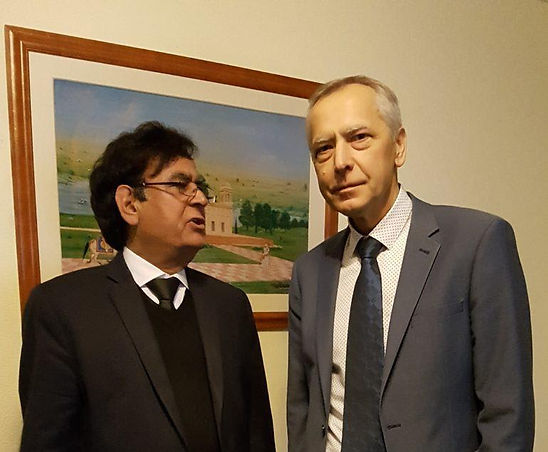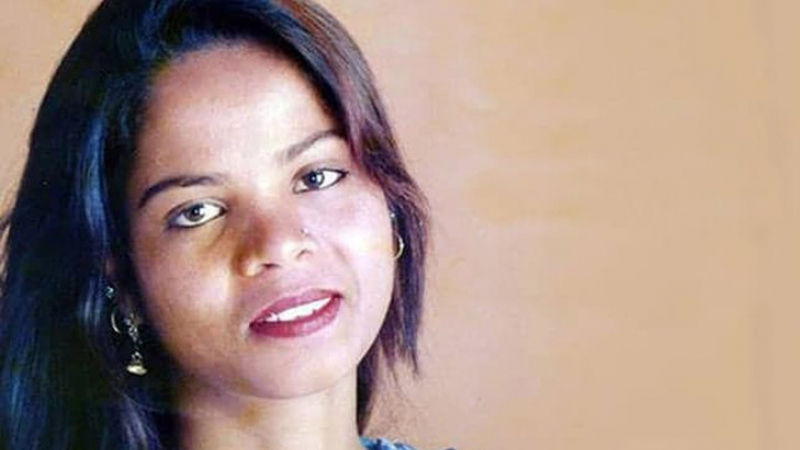Tag: PAKISTAN
-
L’Unione Europea finanzia l’indottrinamento islamista nelle scuole pakistane
Secondo un rapporto del 2024 intitolato Pakistan, Education System, Curriculum and Eu Funding, redatto da Sallux/Ecpm (European Christian Political Movement), tra il 2016 e il 2024, l’Unione europea ha speso più di 150 milioni di euro per l’istruzione in Pakistan. Questo report contiene oltre 40 pagine di brani scelti e immagini tratti da libri di testo scolastici che dimostrano come…
-
EU financira obrazovni sustav Pakistana koji promiče islamizaciju i diskriminaciju kršćana
Između 2016. i 2024. godine EU izdvojila je više od 150 milijuna eura za obrazovanje u Pakistanu. Ta informacija objavljena je u izvješću iz 2024. godine pod nazivom Pakistan, obrazovni sustav, kurikulum i financiranje EU-a, koje je sastavio Europski kršćanski politički pokret (Sallux/ECPM). Izvješće ECPM-a sadrži više od 40 stranica isječaka i slika iz pakistanskih udžbenika.…
-
Éducation islamiste au Pakistan : l’Union européenne épinglée pour son financement à coup de millions d’euros d’un système contraire à ses propres valeurs
Entre 2016 et 2024, l’Union européenne a versé plus de 150 millions d’euros pour soutenir l’éducation au Pakistan. Un soutien financier massif aujourd’hui remis en question, tant le système éducatif pakistanais, fondé sur l’idéologie islamiste et l’intolérance, contrevient aux principes mêmes que prétend défendre Bruxelles. C’est à l’occasion de la 58e session du Conseil des…
-
EU Funds Islamist Indoctrination in Pakistani Schools
The bloc has “lost its credibility as a commercial power guided by human values,” human rights activist said. Between 2016 and 2024, the European Union spent upwards of €150 million on education in Pakistan, according to a 2024 report entitled Pakistan, Education System, Curriculum and EU Funding, authored by Sallux/ECPM (the European Christian Political Movement). The ECPM report contains over 40 pages of…
-
PAKISTAN: Former EU Special Envoy on FORB spoke on human dignity in Pakistan at the UN
On 26 March, CAP/ Liberté de conscience and Human Rights Without Frontiers organized a side-event about the situation of Human Rights in Pakistan. The keynote speaker was Mr Jan Figel, EU Commissioner for Education (2004-2009) and former EU Special Envoy of Freedom of Religion or Belief (2016-2019). Here are the main insights of his presentation.…
-
PAKISTAN: Jan Figel’s views on religious freedom
Former EU FoRB Special Envoy Jan Figel’s views on religious freedom About blasphemy laws; violence against religious minorities; kidnapping, forced conversion and marriages of non-Muslim girls By Willy Fautré, Human Rights Without Frontiers (HRWF) Photo: EU FoRB Special Envoy Jan Figel with Asia Bibi’s lawyer Saif ul Malook in Lahore, Pakistan, December 2017. HRWF (19.02.2022)…
-
Asia Bibi sort de son silence
Asia Bibi vit au Canada depuis sa libération, dans un endroit tenu secret, par crainte de représailles de la part de fondamentalistes musulmans. Cette femme catholique, qui a passé des années dans le couloir de la mort après une accusation de « blasphème contre l’islam », s’est confiée le 31 août 2019 sur ses conditions…
-
En primer video Asia Bibi alienta a fieles a mantenerse firmes en lo que creen
Asia Bibi, la madre católica que estuvo diez años presa y condenada en Pakistán acusada falsamente de blasfemia, publicó un video desde el exilio en Canadá para animar a los creyentes a mantenerse siempre fieles, incluso si es necesario sacrificarlo todo. “Yo, Asia Bibi, hija de Salamat Masih, creo en Jesús. Y hoy quiero declarar…
-
Asia Bibi und das Leid der Blasphemieopfer in Pakistan
09.09.2019 In einem Interview sprach die wegen Blasphemie zum Tode verurteilte Pakistanerin Asia Bibi jüngst über ihre Jahre in der Todeszelle und ihr Exil in Kanada. Ein Zurück gibt es für sie wohl nicht. Asia Bibi ist dem höchsten Gericht Pakistans dankbar für ihren Freispruch nach neun Jahren in der Todeszelle. In dem Interview mit…
-
ŠTÚDIO TA3: J. Figeľ o príbehu oslobodenej pakistanskej kresťanky
ŠTÚDIO TA3: J. Figeľ o príbehu oslobodenej pakistanskej kresťanky https://www.ta3.com/clanok/158743/studio-ta3-j-figel-o-pribehu-oslobodenej-pakistanskej-krestanky V štúdiu TA3 sme si pripomenuli príbeh pakistanskej kresťanky Ásije Bíbíovej. Tá vo svojej rodnej krajine čelila za údajné rúhanie sa trestu smrti. Súd ju napokon oslobodil a pomohol v tom aj vyslanec EÚ pre náboženskú slobodu Ján Figeľ. VIDEO: https://www.ta3.com/clanok/1164276/studio-ta3-j-figel-o-pribehu-oslobodenej-pakistanskej-krestanky.html






